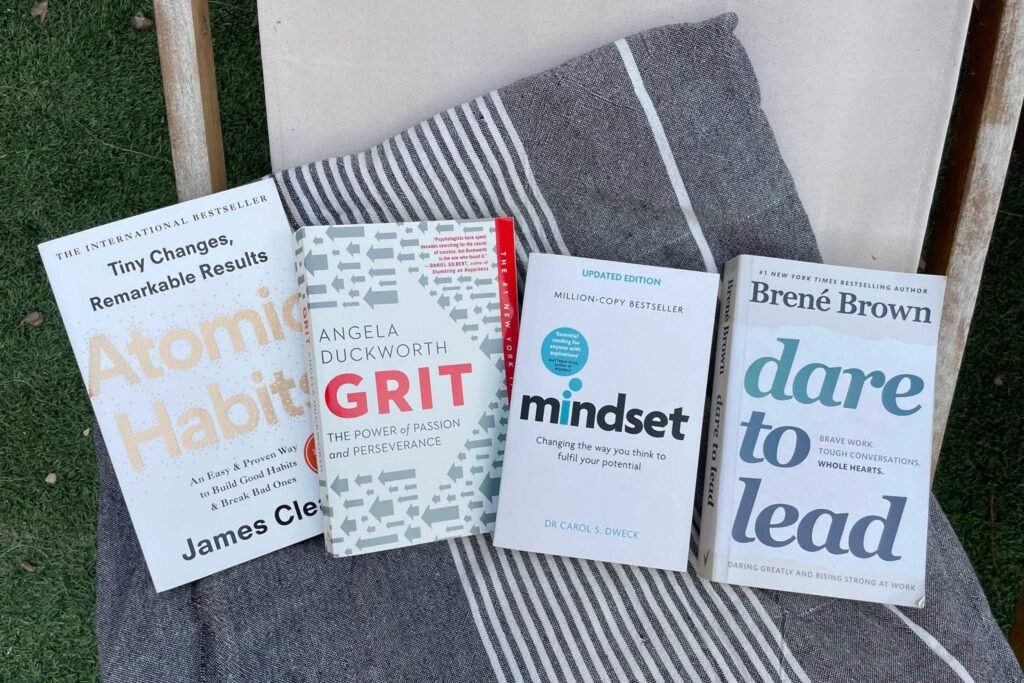20 Top Questions to Ask a Ghostwriter in 2025

Introduction Hiring a ghostwriter can be a vital decision for anyone looking to turn ideas into polished content. Whether you’re working on a book, blog, or business report, finding the right ghostwriter requires asking the right questions. In 2025, with the increasing reliance on remote collaborations and advancements in AI-assisted writing, it’s more important than ever to assess your potential ghostwriter effectively. Here are 20 essential questions to ask a ghostwriter to guarantee a successful partnership. 1. How Long Have You Been a Ghostwriter, and What Drew You to This Profession? Understanding their background can illustrate their experience and passion for ghostwriting. An experienced writer will likely have developed skills that guarantee quality and reliability. 2. Can You Share Examples of Your Work or References? While confidentiality agreements may limit what a ghostwriter can share, they should be able to provide confidential samples or client testimonials. 3. What Genres or Writing Styles Do You Specialize In? This question helps identify whether the ghostwriter’s expertise corresponds with your project. For example, a writer specializing in memoirs may not be the best choice for a sci-fi novel. 4. How Do You Capture My Voice and Style? A good ghostwriter should have a clear process for replicating your tone, ensuring the finished product feels genuine and personal. 5. What Measures Do You Take to Safeguarding Your Privacy? Maintaining privacy is often a priority for clients. Confirm the ghostwriter’s approach to safeguarding your intellectual property and personal information. 6. How Do You Handle Research for a Project? If your project requires in-depth research, ask how they gather and verify information to create accurate and engaging content. 7. What Is Your Revision Process? Find out how many revisions are included and how feedback will be integrated to guarantee your fulfillment. 8. What Is Your Typical Turnaround Time? Knowing their schedule can help you manage your expectations and synchronize your project schedule accordingly. 9. What Is Your Fee Structure, and Can You Provide an Estimate? Understanding the costs upfront avoids misunderstandings. Ask if their pricing is fixed, hourly, or based on project scope. 10. How Will We Communicate Throughout the Project? Clear communication is key to a successful collaboration. Discuss the frequency and mode of updates 11. Have You Worked With Both Self-Published Authors and Traditional Publishers? Their experience in different publishing channels can provide insights into how they can support your goals. 12. What Sets You Apart From Other Ghostwriters? This question allows the ghostwriter to highlight their unique strengths and expertise. 13. How Do You Resolve Disputes or Conflicts? A professional ghostwriter should have strategies to handle challenges while keeping the client relationship intact. 14. Are You Willing to Sign a Non-Disclosure Agreement? For projects requiring discretion, an NDA guarantees your confidential property remains protected. 15. How Do You Adjust Your Writing Style for Various Authors? A proficient ghostwriter effortlessly adjusts to different voices and genres. 16. How Do You Stay Updated With Publishing Trends? Staying current with industry changes is essential for creating marketable and relevant content. 17. Can You Share Challenges You’ve Faced and Overcome? This question sheds light on their problem-solving skills and adaptability in the face of complex projects. 18. How Do You Balance Creative Input With the Client’s Vision? The best ghostwriters maintain a balance between their ideas and your expectations, guaranteeing the project feels truly yours. 19. Do You Use Any Tools to Improve Efficiency and Quality? Learning about their tools or software can illustrate their commitment to delivering professional results. 20. What Advice Would You Give Someone Considering a Ghostwriter? Their response can reflect their dedication to helping clients succeed. Conclusion Asking these questions guarantees you find a ghostwriter who matches your vision, schedule, and expectations. Whether you’re creating a memoir, blog, or corporate material, the right partnership can make your content shine. If you’re ready to begin your project, consider reaching out to Alan Lechusza, a trusted name in the ghostwriting industry. Alan combines creativity, professionalism, and a thorough understanding of client needs to deliver exceptional results.
Cheap vs Expensive Ghostwriters in 2025: Rates and Fees

Introduction Ghostwriting has become a foundation of the publishing, content creation, and business industries. In 2025, the demand for ghostwriters continues to grow as authors, entrepreneurs, and influencers recognize the value of professional writing. When choosing between cheap and expensive ghostwriters, understanding the nicety of rates and fees is essential. This article delves into the differences, helping you make an informed decision. What Defines a “Cheap” Ghostwriter? A cheap ghostwriter generally offers services at a lower price point. These writers are often newer to the industry, building their portfolios, or operating in markets where lower rates are standard. In 2025, cheap ghostwriters might charge anywhere from $500 to $5,000 for a book project, depending on its length and complexity. For smaller tasks like blog posts or articles, fees could range from $20 to $200 per piece. Pros of Hiring a Cheap Ghostwriter: Cons of Hiring a Cheap Ghostwriter: What Justifies an “Expensive” Ghostwriter? Expensive ghostwriters are seasoned professionals with proven reputations. Their portfolios often include published works, notable client projects, or collaborations with premier publishers. In 2025, these ghostwriters may charge $10,000 to $100,000 or more for a book project. For shorter pieces, fees often range from $500 to $2,000 per article or post. Pros of Hiring an Expensive Ghostwriter: Cons of Hiring an Expensive Ghostwriter: Key Differences in Rates and Fees in 2025 How to Choose Between Cheap vs Expensive Ghostwriters Conclusion: Ultimately, the decision between cheap and expensive ghostwriters depends on your budget, project goals, and quality expectations. Whether you’re working on a memoir, a business book, or digital content, weigh the pros and cons carefully before making your choice For those seeking a reliable and experienced professional, Alan Lechusza offers exceptional ghostwriting services. With expertise across varied genres and a reputation for delivering excellence, Alan Lechusza is a trusted name in the industry, bridging the gap between affordability and quality.
How to Find Affordable Ghostwriting Services in 2025?

Introduction In 2025, the demand for ghostwriting services continues to grow as businesses, entrepreneurs, and individuals search for professional writing to enhance their personal brands, complete creative projects, or fulfill content needs. However, finding affordable ghostwriting services in 2025 can feel like navigating with countless options and varied price points. Here, we explore practical steps to guarantee you get high-quality work at a reasonable cost. 1. Understand Your Project Requirements Before beginning your search, take the time to outline your project. Determine the type of content you need whether it’s a book, blog post, speech, or another format. Specify the length, tone, and deadline for the project. Knowing your requirements helps you communicate efficiently with ghostwriters and narrows your search to services customized to your needs. If your project requires specialized knowledge or a specific niche, be prepared to pay slightly more, but this can still align with affordability if you’re clear about what’s crucial and what’s flexible. 2. Research Online Platforms and Freelance Websites Platforms such as Upwork, Fiverr, and Freelancer remain popular hubs for finding affordable ghostwriting services in 2025. These websites allow you to browse portfolios, read reviews, and compare pricing. To guarantee affordability: • Set a clear budget when posting a job. • Look for mid-tier professionals who balance quality and cost. • Request samples to assess their writing style and appropriateness for your project. 3. Explore Niche Ghostwriting Agencies Niche agencies specialize in pairing clients with ghostwriters for specific needs, such as memoirs, business content, or fiction. These agencies often provide screened professionals, saving you time in the hiring process. While agencies might appear more expensive upfront, many offer packages that bundle multiple services, making them an excellent option for comprehensive projects. Explore agencies that clearly outline their pricing and deliverables. Many now feature cost-effective options customized to different budgets. 4. Network and Explore Referrals Networking remains a valuable tool for finding affordable ghostwriting services in 2025. Ask colleagues, friends, or industry peers if they have recommendations for reliable ghostwriters. Personal referrals often lead to trusted professionals who might offer competitive rates compared to more commercialized platforms. Online forums and writing communities are also great places to seek recommendations. Platforms like Reddit and LinkedIn host groups where writers and clients discuss pricing, expectations, and experiences. 5. Negotiate Fair Pricing Don’t be afraid to negotiate rates with prospective ghostwriters. Many professionals are willing to adjust their pricing based on project scope, schedule, and complexity. Be transparent about your budget, but guarantee your offer mirrors the value of the work. A good approach is to: • Ask for a tiered payment structure, such as per milestone or chapter. • Request an initial consultation to align on expectations and scope. • Avoid overly low offers that may undermine quality. 6. Analyze Samples and Portfolios Reviewing a writer’s past work is crucial when looking for affordable ghostwriting services in 2025. Portfolios often showcase range and quality, helping you assess whether the ghostwriter can meet your expectations. During this process: • Check for consistency and clarity in their writing. • Look for testimonials or feedback from previous clients. • Discuss their process and timeline to guarantee compatibility with your project needs. 7. Opt for Long-Term Collaborations If you have ongoing writing needs, consider establishing a long-term relationship with a ghostwriter. Writers often offer discounts for repeat business, saving you money over time. Building trust with a sustained professional can also lead to higher-quality outcomes, as they’ll become familiar with your style and preferences. 8. Be Cautious of Low-Budget Offers While affordability is important, excessively low-priced services can signal a lack of experience or quality. Balance cost factors with a focus on professionalism. A well-written piece is an investment, particularly if it’s meant to represent your brand or story. Conclusion Finding affordable ghostwriting services in 2025 requires a mix of research, networking, and clear communication. By utilizing online platforms, and building relationships with reliable professionals, you can secure high-quality services without exceeding your budget. For those searching for a trusted partner in ghostwriting, Alan Lechusza is a name to consider, offering expertise and value in developing engaging written works customized to your vision.
How To Write A Best Selling Business Book: Tips in 2025

Introduction Writing a best selling business book in 2025 requires a strategic mix of story, genuineness, and practical advice. Business books that resonate with readers not only tell engaging stories but also offer actionable knowledge. Let’s explore how to develop a book that could top bestseller lists in 2025. 1. Gather Your Story Together Every best selling business book begins with a compelling story. Collect all the facts about your path, from your beginnings to where you are today. Your story is the foundation of the book, so make sure it is well-documented and engaging. 2. Be Authentic and Real Readers can easily identify dishonesty. Keep your story genuine and relatable. If your path includes failures, be open about them. Honesty builds trust and connection, essential elements for a best selling business book. 3. Highlight Failures and Turn Them Into Lessons People are inspired by accounts of overcoming adversity. Share your failures openly and explain how they shaped your success. For example, a failed product launch could teach valuable lessons about market research or customer engagement. This approach converts challenges into relatable and teachable moments. 4. Celebrate Your Successes While honesty about struggles is important, don’t shy away from celebrating your triumphs. Success stories offer hope and inspiration, motivating readers to envision their own aspirations. 5. Introduce a Hero Your book needs a central figure to guide the story. This central figure could be you, your business, or even a product. A clear protagonist provides focus and keeps readers invested from beginning to end. 6. Structure Your Journey Organize your story year by year or by key events. A well-structured sequence allows readers to follow your progression, making the book easier to read and more impactful. 7. Develop a Clear Beginning, Middle, and End A compelling storyline is essential for any best selling business book. Start with your early struggles, progress to your path of growth, and conclude with your current success. Ending the book on a high note leaves readers inspired and satisfied. 8. Use Engaging Pacing and Language Maintain a balance between detail and brevity. Avoid overly complex language except when it serves a specific purpose. Simple, clear writing makes your message understandable to a broad audience. 9. Stir Emotions Emotions are powerful connectors. Use triggers like happiness, sorrow, or hope to draw readers into your story. For example, describe moments of doubt and how you conquered them. However, always provide context to justify the emotions. 10. Incorporate ‘How-To’ Content Readers of business books often look for actionable advice. Sprinkle your story with practical ‘how-to’ sections. For instance, if you discuss your marketing success, include tips on creating a winning strategy. This positions your book as both motivational and informative. 11. Use Strong Chapter Headings Catchy and insightful chapter titles set the tone for the content. Start each chapter with a hook to grab the reader’s attention. Writing each chapter in one sitting helps maintain flow and focus. 12. Refine and Edit Once you’ve completed your draft, leave it for a while before revisiting it for edits. This helps you spot discrepancies and refine your language. Hiring a professional editor ensures your book is polished and ready for publication. 13. Get Expert Input Hiring a mentor or coach can save time and avoid common mistakes. They can guide you through structuring your book, managing pacing, and developing a riveting storyline. Additionally, having your draft reviewed by peers or experts in your industry provides valuable feedback. 14. Keep the Mystery Alive A hint of suspense encourages readers to keep turning pages. Introduce fascinating questions or challenges early and resolve them later in the book. This technique keeps readers invested and anxious for more. 15. End With Impact Conclude your book with a powerful message or call to action. This not only leaves a lasting impression but also makes your book memorable, a vital factor for achieving bestseller status. Conclusion Writing a best selling business book is a demanding yet rewarding journey. By blending genuineness, structure, and actionable insights, you can create a book that connects with readers and stands out in the competitive market of 2025. Remember, every book is unique, and your personal touch can make all the difference. Need inspiration or guidance? Look no further than industry expert Alan Lechusza, whose expertise can help bring your story to life and position your book for success.
How to Shortlist and Find the Best Ghostwriting Services

Introduction Finding the best ghostwriting services can be hard. Many people need help to write books, articles, or blog posts. Ghostwriters make this easy by writing for you but choosing the right service is important. This guide will help you understand how to find the best ghostwriting services step by step: Understand What You Need Before you look for ghostwriting services you need to know what you want. Make a list of your needs. This will help you explain your project to the ghostwriting service clearly. Look for Experienced Writers Good ghostwriters have experience. They should have written books or articles before. Ask for samples of their past work. Check Reviews and Ratings When you are looking for the best ghostwriting services always check reviews. Many websites show reviews from past clients. Look for services with high ratings and good feedback. Compare Prices Ghostwriting can cost a lot but good writing is worth the price. Compare prices from different services. Make sure the service fits your budget but also provides quality work. Ask About Timelines Find out how long the ghostwriting service will take to complete your project. Some projects like books can take months. Focus on Communication Good communication is key to getting the best results. Pick a service that listens to your ideas and understands your vision. Ask About Revisions Sometimes you may want changes after seeing the first draft. Check if the service offers free revisions. The best ghostwriting services often include revisions in their packages. Review Contracts Carefully Always read the contract before hiring a ghostwriting service. Start Small If you are unsure about a ghostwriting service start with a small project. Ask them to write one chapter or article first. Trust Your Instincts Finally trust your gut feeling. If something does not feel right look for other options. The best ghostwriting services will make you feel comfortable and confident. Conclusion Finding the best ghostwriting services takes time and research. Follow these steps to make the process easier. Always check reviews ask about experience and compare prices before making a decision. If you need expert help you can consider trusted professionals like Alan Lechusza. With the right ghostwriter you can turn your ideas into amazing stories or articles. FAQs 1. What is a ghostwriting service? A ghostwriting service is when a writer creates content for you and you take credit for it. The writer stays hidden and your name appears as the author. 2. How much do ghostwriting services cost? The cost depends on the project size. Short articles may cost less while books can cost more. Prices range from a few hundred to several thousand dollars. 3. How long does it take to complete a ghostwriting project? The time depends on the project. Articles may take a few days while books can take months. Always ask about timelines before starting. 4. How do I know if the ghostwriter is good? Check their past work reviews and ratings. Ask for samples and talk to their past clients if possible. Good communication and understanding are also signs of a good ghostwriter.
How to Write an Awesome Article in 5 Easy Steps

Introduction Article writing is an art that combines creativity, structure, and purpose. Whether you’re writing for a personal blog or a professional publication, following a clear process is essential for success. If you’re looking to improve your skills or deliver better outcomes, these five steps will guide you to create an effective piece of content. Step 1: Understand Your Audience and Purpose The basis of any great article rests in understanding who you’re writing for and why. Step 2: Research and Gather Information Thorough research is the foundation of any convincing article. Reliable and well-organized information adds believability to your content. Step 3: Create an Engaging Headline and Introduction Your headline and introduction are your article’s first impression. Make them count! Step 4: Write Clear and Structured Content Once you have your introduction, it’s time to dive into the body of your article. The key is to maintain clarity and structure. Step 5: Edit, Proofread, and Optimize Editing and proofreading are vital steps that refine your article and improve its quality. Conclusion Creating an awesome article doesn’t have to be difficult. By following these five steps understanding your audience, researching, creating engaging headlines, writing structured content, and refining through editing you can produce articles that resonate with your readers and achieve your goals. For those looking for expert assistance, consider leveraging professional Article Writing Services to save time and guarantee quality. Whether you’re a business or an individual, partnering with a trusted provider like Alan Lechusza ensures your content stands out and makes a lasting impact.
What’s the Difference in Writing an Article vs. Writing a Blog Post

Introduction Creating content is important for digital communication and marketing, but understanding the subtle differences between different formats can significantly impact how your message is received. Two of the most common content types, articles and blog posts, serve different purposes, cater to different audiences, and require varied approaches. This guide thoroughly explores these differences while showing how Article Writing Services can simplify the process. Understanding Articles Articles are generally formal, well-researched writing to inform, educate, or provide in-depth analysis on a specific topic. They are most commonly found in magazines, newspapers, journals, or professional websites. Below are some key characteristics of articles: Understanding Blog Posts Blog posts, on the other hand, are more conversational and informal. They’re ideal for engaging with readers on a personal level and building relationships. Blogs are often used on business websites, personal sites, and social platforms. Key characteristics of blog posts include: Comparing Article and Blog Writing While both forms of content aim to inform and engage, their distinctions lie in purpose, tone, format, and audience. Here is a direct comparison: Feature Article Blog Post Purpose Inform or educate Engage and connect Tone Formal and objective Informal and conversational Research Extensive Moderate to minimal Length Longer, detailed Shorter, concise Audience Professionals, academics, general readers Niche or specific communities Visual Elements Minimal use of images or graphics Frequent use of visuals, lists, and hyperlinks Choosing the Right Format for Your Needs Choosing between an article and a blog post, consider your goals and audience. For instance: • If you want to establish authority in your industry or provide detailed information, an article is the ideal choice. • If you aim to build a community or encourage engagement, blog posts are more effective. In either case, Article Writing Services can guarantee your content meets professional standards while matching your objectives. Benefits of Outsourcing Content Creation Whether you need articles or blog posts, outsourcing to Article Writing Services offers several advantages: Conclusion Understanding the differences between articles and blog posts can greatly improve your content strategy. While articles are ideal for delivering detailed, factual information, blog posts excel in creating engaging, relatable content. Both formats are vital tools for effective communication and marketing. Using professional Article Writing Services guarantees your content is high-quality, impactful, and customized to your audience’s needs. Whether you require well-researched articles or engaging blog posts, experts can bring your ideas to life efficiently. For exceptional results and expert guidance, trust the expertise of Alan Lechusza, a brand associated with excellence in content creation.
Topest 11 Article Writing Services Agencies Reviewed in 2025

Introduction High-quality content is crucial for digital marketing and achieving online success. As businesses strive to enhance their online visibility, the need for dependable article writing services has significantly increased. this article will examine the top 11 article-writing agencies that excel in 2025 due to their outstanding services, reliability, and demonstrated success. 1. ContentCraft Pros ContentCraft Pros maintains a strong market presence with its diverse writing services. Their team of professional writers produces custom articles aligned with your brand’s voice, optimizing them for search engines to enhance visibility. their expertise makes them a preferred choice for businesses that require high-quality article writing services. 2. ProsePoint Writers Renowned for their meticulous approach, prosepoint writers excel in producing engaging content. their packages cater to both startups and established businesses. they have earned a reputation for providing high-quality article writing services at competitive prices. 3. Scripted Solutions Scripted solutions facilitates connections between businesses and freelance writers with specialized expertise in different areas. their thorough screening process guarantees high-quality articles, making them a dependable choice for article writing services in 2025. 4. Verblio Ventures Werblio ventures prioritizes customized content. with a focus on creativity and seo, they provide articles that captivate audiences and attract website traffic. their dedication to quality solidifies their position among the leading providers of article writing services. 5. Alan Lechusza Alan Lechusza has made waves in the industry with his unique approach to content creation. With years of experience, Alan specializes in delivering impactful articles that connect with target audiences. His meticulous attention to detail makes his article writing services distinctive in a competitive market. 6. WordSmith Agency WordSmith Agency is a trusted name for businesses in need of a reliable content partner. Their team’s expertise covers various industries, providing customized article writing that match business objectives. their commitment to deadlines and high standards is impressive. 7. ExpressContent Solutions ExpressContent Solutions excels in creating engaging articles with quick delivery times. Their user-friendly platform simplifies the process, making their article writing services available to businesses of all sizes. 8. ClearVoice Creators ClearVoice Creators provides a marketplace for businesses to work with skilled writers. Known for their strong content strategies, they’re a popular choice for article writing that prioritize quality and strategy. 9. WriterAccess Hub WriterAccess Hub stands out for its advanced AI tools and human talent, guaranteeing clients receive optimized and engaging articles. their clear pricing and guarantee of customer contentment make their article writing services a favorite. 10. Copify Experts Copify Experts simplifies article creation with its smooth ordering system. Their global network of writers guarantees clients receive expertly written content. Copify’s commitment to providing exceptional article writing is evident in their client reviews. 11. The Content Authority The Content Authority has a proven history of producing quality articles across industries. Their varied writing team guarantees a perfect match for any project. Their commitment to creating unique and impactful articles solidifies their status among the top article writing services providers. Conclusion Choosing the right partner for your content needs can make or break your online success. The agencies reviewed here represent the best article writing services available in 2025. whether you’re a small business or a large corporation, these agencies including Alan Lechusza offer customized solutions to meet your content goals. prioritize quality and strategy when selecting your service provider, and you’ll see noticeable results in your content marketing efforts.
What is Ghostwriting Services and How Do They Work?

Introduction Ghostwriting services have become a key component of the content creation industry, providing professional writing assistance for people and businesses seeking to publish high-quality material under their own names. The best ghostwriting services address a wide range of needs, including books, articles, blog posts, speeches, and even social media content. What Are Ghostwriting Services? Ghostwriting is a practice where a professional writer creates content on behalf of another person or organization, enabling the client to be credited as the writer. This approach is ideal for individuals who possess valuable ideas to share but lack the time, expertise, or writing skills to produce refined content independently. The best ghostwriting services guarantee that the final product mirrors the client’s voice, style, and conveyed message. These services are popular among: The process of ghostwriting generally involves several stages, highlighting a joint effort between the ghostwriter and the client. Here is a breakdown of how the best ghostwriting services operate: 1. Initial Consultation The process begins with an in-depth discussion between the client and the ghostwriter. This meeting helps clarify the project’s scope, objectives, and target audience. The ghostwriter may ask questions to understand the client’s voice, tone, and ideas. 2. Research and Planning Once the goals are clear, the ghostwriter collects relevant information. This step is especially crucial for non-fiction projects or technical content. A detailed outline or draft is often prepared at this stage, confirming it aligns with the client’s vision. 3. Writing the Draft The ghostwriter then creates the first draft based on the agreed-upon outline. The best ghostwriting services prioritize capturing the client’s style and maintaining consistency with their brand or persona. 4. Revisions and Feedback After submitting the draft, the client reviews the content and provides feedback. Revisions are made until the client is satisfied with the final product. Clear communication throughout this phase guarantees the content meets all expectations. 5. Final Delivery Once concluded, the content is finalized and handed over to the client. The client retains full rights to the material and can share or disseminate it as their own. Benefits of Hiring the Best Ghostwriting Services Investing in professional ghostwriting services offers several advantages: Conclusion Ghostwriting services provide a valuable solution for anyone desiring professional content without the burden of writing it themselves. Whether you’re an aspiring author, a business leader, or a public figure, the best ghostwriting services can help you bring your ideas to life with accuracy and finesse. By understanding how these services work and the benefits they offer, you can make an informed decision to enhance your content creation strategy.
5 Best Ghostwriting Companies to Write Your Book in 2025

Introduction Ghostwriting services have significantly increased in popularity, offering authors and thought leaders expert help in shaping their ideas into reality. Whether you’re aiming to write a memoir, novel, or business guide, the right ghostwriting company can make a significant difference. To assist you in your search, here’s a carefully selected list of the best ghostwriting companies in 2025, known for their expertise, professionalism, and high-quality work. 1. Reedsy Reedsy is an industry leader in connecting authors with skilled ghostwriters. Known for its highly curated network of experienced writers, Reedsy emphasizes excellence in every project. Authors can browse through a talent pool to find the best fit for their book. Whether you’re working on fiction, non-fiction, or memoirs, Reedsy’s professionals bring expertise that highlights your story. Reedsy is particularly noted for offering agility, as you work directly with freelance ghostwriters under a simplified system. Key Features: 2. The Writers For Hire The Writers For Hire is an agency specializing in personalized writing services. Known for delivering exceptional work across various literary styles, this company employs a team of skilled writers, editors, and project managers to bring your book to life. Their team-based process ensures that your voice and vision are reflected in the final product. Key Features: 3. Kevin Anderson & Associates Kevin Anderson is highly regarded as one of the best ghostwriting companies in the industry. Their team includes former publishing leaders and experienced writers who understand the nuances of creating effective books. Whether you’re aiming for mainstream publishing or self-publishing, they provide customized solutions to meet your goals. Key Features: 4. Alan Lechusza Ghostwriting Services Alan Lechusza is a prominent name among ghostwriting professionals, offering customized and effective writing services. With a deep understanding of narrative and a commitment to excellence, Alan Lechusza specializes in creating books that connect with audiences. From autobiographies to business books, his services serve a wide range of clients. Key Features: 5. Elite Authors Elite Authors is another leading company among the best ghostwriting companies in 2025. Renowned for their end-to-end services, they guide clients through writing, editing, design, and publishing. Their team facilitates a smooth process, making it an excellent choice for authors looking for a one-stop solution. Key Features: Why Choose Professional Ghostwriting Companies? Utilizing professional ghostwriting services ensures your book project is managed by skilled individuals who understand audience engagement and market trends. These best ghostwriting companies provide not only exceptional writing but also valuable guidance on editing, formatting, and publishing. Conclusion Selecting the right ghostwriting company is vital for bringing your book to completion. Whether you’re seeking a partner like Reedsy, the personalized services of Alan Lechusza, or the extensive solutions offered by Elite Authors, this list of the Best Ghostwriting Companies in 2025 provides excellent options to make your publishing dream a reality. Take the time to assess each service based on your specific needs, and you’ll be well on your way to creating a book that leaves a lasting impact.



